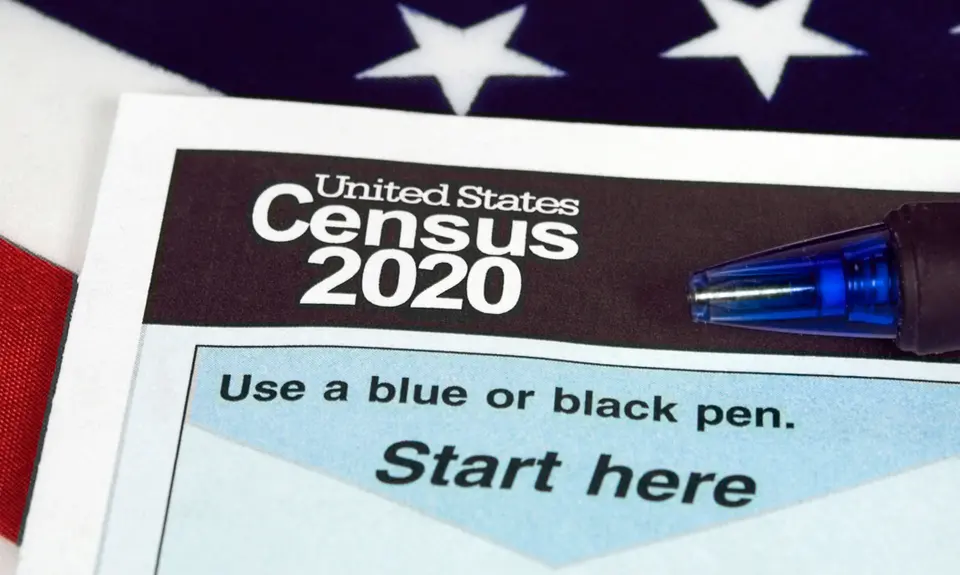“Confirmed Judges, Confirmed Fears” is a blog series documenting the harmful impact of President Trump’s judges on Americans’ rights and liberties. Cases in the series can be found by issue and by judge at this link.
Trump DC Circuit judge Greg Katsas wrote a 2-1 decision, joined by a Trump district judge, that dismissed a challenge to a Trump directive to the Commerce Department and the Census Bureau to do everything they can to “exclude” undocumented immigrants from the “apportionment base” – population statistics reported by the Bureau after each census that are used to determine how many House seats are apportioned to each state. This was despite the fact that the Supreme Court is now considering the issue as a result of a different decision that ruled that Trump’s directive was improper. The November 2020 decision by Katsas is in Common Cause v Trump.
Undaunted by the Supreme Court’s rejection of his effort to add a citizenship question to the 2020 census, President Trump issued a memorandum this summer that directed the Commerce Department and Census Bureau to do everything they can to exclude undocumented immigrants from the official 2020 census population counts that will be used to reapportion seats in the House of Representatives among the states. Challenges to Trump’s order have been filed around the country and have generally been considered by special three-judge district courts, composed of two district judges and one court of appeals judge, pursuant to a federal law concerning lawsuits related to apportionment issues. Three other courts have already ruled that the directive is illegal, and one of those cases is now under consideration by the Supreme Court, with oral argument held on November 30.
In a lawsuit brought in DC, however, Trump DC Circuit judge Greg Katsas, joined by Trump DC District Court judge Dabney Friedrich, dismissed the challenge as premature and not “ripe for review.” Katsas noted that although 2020 Census field operations are now complete, the Bureau continues to “analyze and compile the data,” with a report to the President due on December 31 and the President’s statement to Congress due on January 10, 2021. Katsas stated that the Bureau has claimed that the directive required exclusion of undocumented persons “only to the extent that it may feasibly be accomplished through lawful methods,” which “prevents us from knowing” precisely which and how many persons will be excluded from the count and in what states. A court decision on the challenge now, Katsas went on, would “inappropriately interfere with ongoing action” within the Executive branch, and the case is not “ripe for review” until the process is complete and the President “transmits his statement” to Congress. The court thus voted 2-1 to dismiss the case.
Judge Christopher Cooper strongly dissented. Any “intrusion” in the administrative process would be “minimal” at this point, Cooper explained, since counting has concluded and the Bureau is only weeks away from reporting the population information. It is not important to know precisely which people will be ultimately recommended for exclusion and in which states, he went on, because the key issue is the “singular legal proposition” by Trump that he has the “authority to exclude” undocumented immigrants from the apportionment base, which other courts have found violates the language of the Constitution and federal law. There is no reason to delay resolution of this “purely legal question,” Cooper continued, particularly since Trump’s directive makes clear that one of its purposes is to reduce “two or three’ congressional seats from the allocation to California because of the 2.2 million undocumented immigrants there. Delaying the case until after January 10 as the majority ordered, Cooper concluded, will only “unnecessarily complicate ensuring compliance with any order of relief” and “needlessly jeopardize states’ ability to meet their own redistricting timetables.”
The decision on the merits against Trump by several other courts, and the pending review in the Supreme Court, will hopefully avoid delay in resolving this important issue and preventing improper action by Trump, despite Katsas’ ruling. In fact, however, the very first argument made by the government to the Supreme Court at the November 30 oral hearing in the New York case was that the Court should follow Katsas’ example and vacate the decision in the New York case as premature, particularly in light of technical problems that now make it unlikely that the Bureau will be able to send its report to the President by December 31. Some of the Court’s right-wing justices appeared receptive to the argument for delay, although even some of them “seemed to doubt” that Trump has the authority under the text of the Constitution and laws to exclude undocumented people from census results for apportionment purposes. The Court had been expected maybe say to issue some ruling before the January 10 deadline
